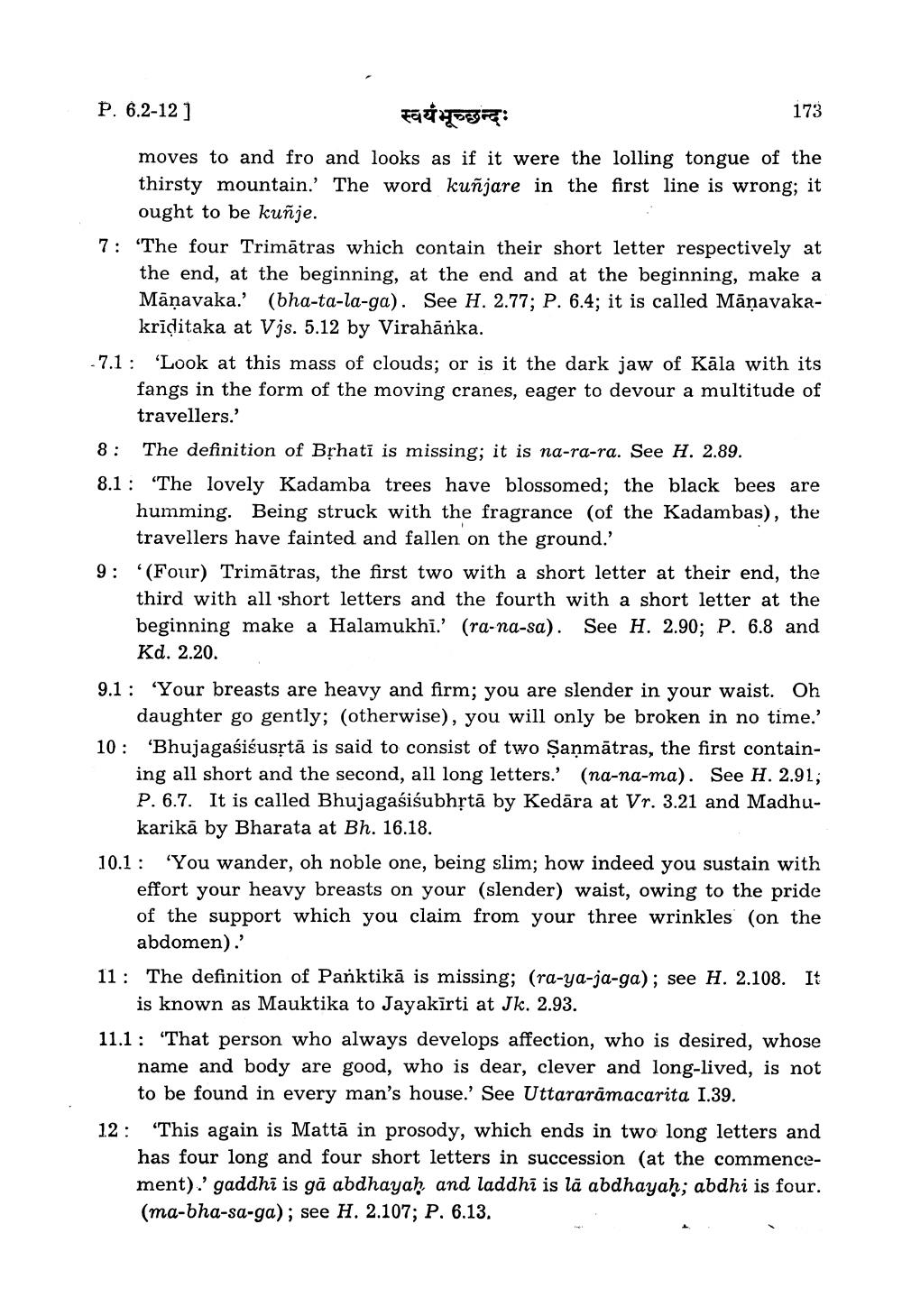________________
173
P. 6.2-121
स्वयंभूच्छन्दः moves to and fro and looks as if it were the lolling tongue of the thirsty mountain.' The word kuñjare in the first line is wrong; it
ought to be kuñje. 7: "The four Trimätras which contain their short letter respectively at
the end, at the beginning, at the end and at the beginning, make a Māņavaka. (bha-ta-la-ga). See H. 2.77; P. 6.4; it is called Māņavaka
kriditaka at Vjs. 5.12 by Virahanka. -7.1 : 'Look at this mass of clouds; or is it the dark jaw of Kāla with its
fangs in the form of the moving cranes, eager to devour a multitude of
travellers. 8: The definition of Bșhati is missing; it is na-ra-ra. See H. 2.89. 8.1: "The lovely Kadamba trees have blossomed; the black bees are
humming. Being struck with the fragrance (of the Kadambas), the
travellers have fainted and fallen on the ground.' 9: '(Four) Trimātras, the first two with a short letter at their end, the
third with all .short letters and the fourth with a short letter at the beginning make a Halamukhi.' (ra-na-sa). See H. 2.90; P. 6.8 and Kd. 2.20.
9.1 : 'Your breasts are heavy and firm; you are slender in your waist. Oh
daughter go gently; (otherwise), you will only be broken in no time.' 10: 'Bhujagaśiśusștā is said to consist of two Şaņmātras, the first contain
ing all short and the second, all long letters.' (na-na-ma). See H. 2.91; P. 6.7. It is called Bhujagaśiśubhṛtā by Kedāra at Vr. 3.21 and Madhu
karikā by Bharata at Bh. 16.18. 10.1: 'You wander, oh noble one, being slim; how indeed you sustain with
effort your heavy breasts on your (slender) waist, owing to the pride of the support which you claim from your three wrinkles (on the
abdomen).' 11: The definition of Panktikā is missing; (ra-ya-ja-ga); see H. 2.108. It
is known as Mauktika to Jayakīrti at Jk. 2.93. 11.1: "That person who always develops affection, who is desired, whose
name and body are good, who is dear, clever and long-lived, is not
to be found in every man's house.' See Uttararamacarita I.39. 12: "This again is Mattā in prosody, which ends in two long letters and
has four long and four short letters in succession (at the commencement). gaddhi is gā abdhayah and laddhi is lā abdhayah; abdhi is four. (ma-bha-sa-ga); see H. 2.107; P. 6.13.




